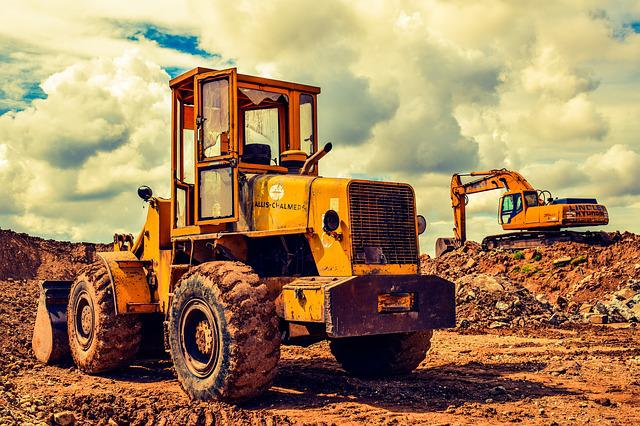Services
Vacant Land
When you are financing a vacant land purchase there are a few things that you should be aware of in order to make sure that you are getting the best possible deal on your mortgage. Land mortgages are typically seen as riskier by lenders, so the interest rates are usually higher and the terms of the loan may be more strict. Land mortgages can be acquired to either purchase or refinance land parcels. In Canada, private lenders are the best source for land mortgages because banks typically do not finance land purchases. Trying to buy land through a bank is often more difficult than going through a private lender. The main reason for this is that banks are much more risk-averse when it comes to land because it can be more difficult to resell if the borrower defaults on the loan. While other lenders offer land loans, the terms are not as favorable as they would be with a private lender. Here at Winnipeg Mortgage, we can help you get the best possible terms on your vacant land mortgage. We've been in the business for over a decade assisting people with their mortgage needs. No matter what your situation is, we can find a solution that works for you. Contact us today to get started.
and how does it work
We understand that not everyone is familiar with the term 'vacant land mortgage', so let's start with a definition. A vacant land mortgage is a loan that is used to finance the purchase of a piece of vacant land. The loan can be used for either personal or investment purposes. Vacant land mortgages work in much the same way as regular mortgages, except that the land serves as collateral for the loan instead of a home. The terms of the loan will be based on the value of the raw land, your credit history, and your income. Unlike home equity loans, which are typically used for home improvement projects, a vacant land mortgage can only be used to purchase undeveloped land. While home equity loan interest rates are usually lower than those of a land loan, the latter offers the advantage of being tax-deductible. The down payment for a vacant land mortgage is typically higher than it would be for a regular mortgage since the lender sees the loan as being more of a risk. The minimum down payment is usually 20% of the purchase price, but you may be able to put down less if you have a good credit history.


of land loans?
Aside from traditional mortgage/loan, different types of land loans are available to borrow money for buying land. Here are some of the most common types of loans used to finance the purchase of land:
A home equity loan is a second mortgage on your personal residence. The loan is based on the equity you have in your primary residence, which is the difference between the appraised value of your home and the amount you still owe on your mortgage. Home equity loans can be used for any purpose, including purchasing land. Compared to traditional residential mortgages, home equity loans have lower interest rates.
Also referred to as a construction mortgage, construction loans can be used to borrow money for both the purchase of land and the construction of a home on that land. Construction loans are typically short-term loans with interest-only payments during the construction period. Once the home is completed, the loan will need to be refinanced into a regular mortgage. Some mortgage financing can give up to 65% loan to value during the construction period.
If you are planning to get a mortgage with the purpose of buying a farm, you will most likely need to apply for an agricultural loan. The good thing about this kind of loan is they are available from every major bank in Canada. The terms and conditions of an agricultural loan vary from one lender to another, so it's important that you compare offers before deciding on a loan. The Canadian Agricultural Loans Act program that is being offered by the federal government is one of the most popular agricultural loan programs in the country. Under this program, farmers can borrow up to $500,000 for a term of up to 10 years and a down payment as low as 10%.
There's also this seller financing also called the owner financing. The owner of the land agrees to finance the purchase for the buyer. The terms of the loan will be agreed upon by both parties and can be structured in a number of ways. This is a great option if you are having a difficult time qualifying for raw land loans.
vacant land loans
There are a number of different ways to finance the purchase of land. One option is to work with the seller to arrange financing. This can be a good option if the seller is motivated to sell and is willing to work with you on terms. Another option is to use a local lender. This can be a good option if you have a good relationship with the bank or credit union and they are familiar with your financial history. The third option is to take out a home equity loan. This can be a good way to access the equity you have built up in your home, but it does come with some risks. Be sure to research all of your options and choose the one that is best for your situation. Winnipeg Mortgages is here to help. Give us a call today to see how we can help you finance your land purchase.
for a vacant land mortgage
If you are asking the same questions as the majority, you may want to qualify for a vacant land mortgage. The requirements are similar to those of a regular mortgage, but there are some key differences that you should be aware of.
Here are the basics:
For most people, the down payment is the biggest obstacle to buying land. The minimum down payment for a vacant land mortgage is typically 20% of the purchase price. This means that if you are buying land for $100,000, you will need to have at least $20,000 for the down payment.
We will also want to see evidence of your income and employment. We will want to see that you have a steady job and income that can support the mortgage payments.
Your credit score will also be a factor in determining whether or not you qualify for a vacant land mortgage. The higher your credit score, the better your chances of qualifying.
The debt-to-income ratio is a key factor in determining whether or not you will qualify for a mortgage. This ratio compares your monthly debt payments to your monthly income. For most people, the ideal debt-to-income ratio is 36% or less.
The loan-to-value ratio is another important factor in determining whether or not you will qualify for a vacant land mortgage. This ratio compares the loan amount to the value of the property. For most people, the ideal loan-to-value ratio is 80% or less. These are the basics of qualifying for a vacant land mortgage. If you have any questions, please feel free to contact us. We would be happy to help you through the process.
the bank assess?
Since you've reached this far, let's walk you through the documents and information that a bank will require if you decide to go the traditional lending route to finance your land purchase: The Land SIze - The bank will want to know the size of the land you are looking to purchase. Location - The difficulty of financing a land or approving an application will also depend on the location of the property. The closer the land is to cities or well-populated areas, the easier it will be to finance. Zoning - The bank will also want to know what the property is zoned for. They will be more likely to finance a land purchase if it is zoned for residential use. Purpose of purchase - The bank will want to know what you plan to do with the property. Are you planning to build a home? Develop it? Or keep it as vacant land? Land use - The bank will also want to know how you plan to use the land. Are you planning to farm it? Graze livestock on it? Use it for recreation? These are some of the key factors that the bank will assess when you apply for a vacant land mortgage. Always be ready for any additional requirements that the bank may have.
vacant land mortgage
Lenders in Winnipeg are more likely to demand interest rates, down payments, and other conditions that are more stringent than those for standard mortgages. Here are the steps you need to take in order to get a mortgage for vacant land:
-
1. Find a lender
The first step is to find a lender that is willing to give you a mortgage for vacant land. Not all lenders are willing to do this, so you may need to shop around. The good thing is that Winnipeg Mortgages is here to help. So the first step is to give us a call!
-
2. Get a pre-approval
The next step is to get a pre-approval. This will give you an idea of how much money you can borrow and what the interest rate will be.
-
3. Find the right property
The next step is to find the right property. This is an important step because you want to make sure that the property is worth the price you are paying.
-
4. Make an offer
The next step is to make an offer on the property. This is where you will need to have your financing in place.
-
5. Close to the property
The last step is to close on the property. This is where you will sign the mortgage papers and make the down payment. Also, make sure to prepare all necessary documents, such as your ID, proof of income, and so on as we likely will ask for them.
Winnipeg Mortgages
If you are planning to invest in vacant land, we can help you get the financing you need. We have a wide range of options available and our team of experts can help you find the right one for your needs. We can customize a mortgage solution that fits your budget and helps you reach your goals. Contact Winnipeg Mortgages today and let your dream of acquiring your own piece of land become a reality.
FEEDBACK FROM CLIENTS
-
Chris Johnson
Homeowners“The interest rate we received from them was, quite frankly, incredible. I actually thought it was a typo at first! If I could rate them higher than five stars, I would!”

Contact With Us

-
How Do You Qualify For A Loan?
Lorem ipsum dolor sit amet, consectetur adipisicing elit, sed do eiusmod tempor incididunt ut labore et dolore magna aliqua Ut enim ad minim veniam dolore magna
-
A Good Lender Will Clearly Explain Mortgage?
Lorem ipsum dolor sit amet, consectetur adipisicing elit, sed do eiusmod tempor incididunt ut labore et dolore magna aliqua Ut enim ad minim veniam dolore magna
-
Can You Get A Mortgage Without A Credit Score?
Lorem ipsum dolor sit amet, consectetur adipisicing elit, sed do eiusmod tempor incididunt ut labore et dolore magna aliqua Ut enim ad minim veniam dolore magna
-
How Much Home Can You Afford?
Lorem ipsum dolor sit amet, consectetur adipisicing elit, sed do eiusmod tempor incididunt ut labore et dolore magna aliqua Ut enim ad minim veniam dolore magna
-
Purchase New House
Lorem ipsum dolor sit amet, consectetur adipisicing elit, sed do eiusmod tempor incididunt ut labore et dolore magna aliqua Ut enim ad minim veniam dolore magna
-
Capital Management
Lorem ipsum dolor sit amet, consectetur adipisicing elit, sed do eiusmod tempor incididunt ut labore et dolore magna aliqua Ut enim ad minim veniam dolore magna